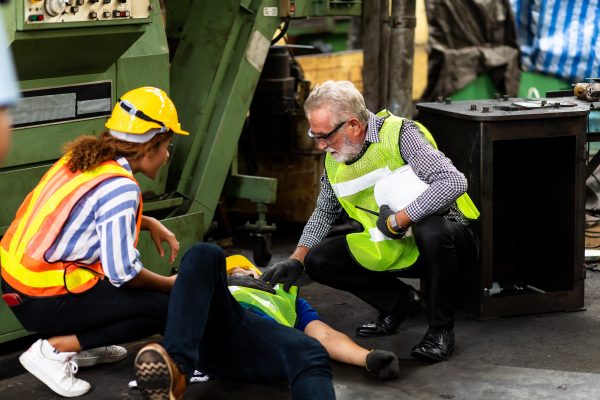Martin McColl Limited and JMS Retail Concepts Limited have both been sentenced after two members of the public tripped and fell over construction work outside a convenience store in Dinas Powys, Vale of Glamorgan.
Cardiff Magistrates’ Court heard that during the three days it took to construct a concrete ramp intended for mobility impaired customers that two members of the public were injured whilst attempting to enter the store. On 12th January 2016 an elderly member of the public tripped over the construction works resulting a in a fractured wrist, head injury and severe bruising. The very next day, another elderly member of public fell from the partially constructed concrete ramp; fracturing his collar bone and suffering severe bruising.
An investigation by HSE found that construction work (which was undertaken while the store was open) meant customers were required to walk through the construction site to enter and exit the store. It would have been reasonably practicable to close the store during the construction of the ramp and install barriers and signs to prevent access by members of the public.
Martin McColl Limited pleaded guilty on the first day of a two-day trial (after initially pleading not guilty) to breaching Section 3(1) of the Health & Safety at Work etc. Act 1974and they were fined £600,000 and ordered to pay costs of £11,520. JMS Retail Concepts Limited of Stump Lane, Chorley, Lancashire pleaded guilty to breaching Section 3(1) of the Health & Safety at Work etc. Act 1974, and have been fined £40,000 and ordered to pay costs of £3,038.
Speaking after the hearing HSE inspector Gemma Pavey said “These incidents could so easily have been avoided by simply carrying out correct control measures and safe working practices.” The Inspector went on to say, Commercial clients and companies should be aware that HSE will not hesitate to take appropriate enforcement action against those that fall below the required standards.”
NOTE: Many business owners (the “Client” under the Construction (Design and Management) Regulations 2015) who only occasionally have construction work done will not be experts in construction work. As such they are not expected to actively manage or supervise the construction work done by others (contractors). However, the “Client” does have a big influence over the way the construction work is carried out. Whatever the size of any construction project; the Client will decide which Designer and Contractor will carry out the work and how much money, time and resource is available. The decisions made will have an impact on the health, safety and welfare of workers and others affected by the work. The work is more likely to be done without harming anyone if the work is properly planned and managed. Sometimes the work is complex and uses many different trades. Often it involves high-risk work. The Principal Designer should understand these types of risks and try to avoid them when designing the project. The Principal Contractor or Builder engaged by the Client should then adequately manage the risks on the site; including the risks to others, such as customers, visitors etc. Owners / Managers for the business must take reasonably practicable steps to ensure that they appoint competent “duty holders” under the Construction (Design and Management) Regulations 2015.

Stocking only premium EV charging cables, we ensure you experience a stress-free EV charge, over and over, confidently backed by our 2 year warranty. Our premium & reliable charging cables are compliant with EU & UK safety standards. We offer free next day delivery* on all EV charging cables when shipped within mainland UK.







